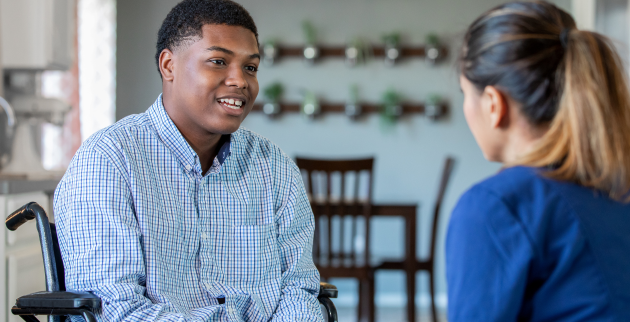Suicide

It’s normal to feel low or sad. But sometimes these feelings can get out of control.
When someone gets very unhappy, stressed or depressed, they may become suicidal (want to seriously harm or kill themselves). These feelings can come on over a period of time, or very suddenly.
There is often an immediate reason for the stress the person is under (abuse in a relationship, for example, or a bereavement). But this does not explain suicide.
Suicide is a very rare response to stress.
Immediate action: If you or someone is in immediate danger dial 999.
Stop doing, start talking
When someone's feelings are getting out of control, it can be very hard for them to think clearly.
They may say or do risky things that hurt themselves and other people.
If you or a friend are feeling very stressed or unhappy, you need to take action:
- Talk to someone (a family member, friend, teacher, school health nurse, or helpline, like Childline)
- See your GP and explain how you are feeling.
- Immediately reduce or stop any activities (like drinking, taking drugs or driving a car) that might increase risk
Calling a helpline may be helpful as you can remain anonymous and the advisers are trained to listen. But they may not be able to offer as much help as those close to you, or who have a responsibility to look after you (like parents/carers, teachers, youth workers, or your Doctor).
Crucial: The School Health Nurse service can help with all kinds of health problems, including feelings of stress, panic and unhappiness, even in school or college holidays.
If you need to talk to a helpline, all these can help:
- Papyrus Hopeline UK - call 0800 068 41 41, text 88247, or email pat@papyrus-uk.org
- Childline - call 0800 1111, send an email, or use their 1-2-1 counsellor chat
- CALM - call 0800 58 58 58 or use their livechat
- Shout helpline - text the word 'shout' to 85258
- National Suicide Prevention Helpline - call 0800 587 0800
The Self Harm Page includes further sources of support.
Instant expert: Why are young people more at risk? What helps, and what you should you avoid? Find out more about suicidal thoughts from Oxford Health CAMHS
If someone needs help
If someone you know is considering suicide, very distressed or in a crisis, you can help:
- Take them seriously
- Listen
- Encourage them to ask for help and ask for help yourself.
- Don't try to solve their problems
- If you believe that your friend or someone else may be at risk of getting hurt, get help right away.
Helping a friend or family member in a crisis can be very upsetting and stressful. Many people find that getting help for themselves is helpful.
Talk to your GP, school health nurse, a worker or volunteer at a youth group, or a helpline.
Take action: If you or someone you know struggles with thoughts of suicide, help is available. You can find out more and download the Stay Alive app.
If someone has died
Getting support after someone has died is really important. Research shows that when someone may have died from suicide, there is an impact on other people.
This can happen for family, friends, acquaintances, people professionally in contact with the person (like Doctors or Teachers), and other people, even even if they did not know the person well at all.
Everyone has the right to their own feelings, and anyone suffering difficulties after someone may have died from suicide can ask for help.
Talking to friends and family is helpful, but many people find it also helps to talk to a helpline, or someone who can provide support like their GP or School Health Nurse.
Get help: This guide, called Help is at Hand, was written for everyone who has been affected by suicide. It contains practical help, signposts further support and discusses how you may feel. It also gives practical strategies for things like telling others and comforting friends. It was written with the help of people bereaved by suicide.


